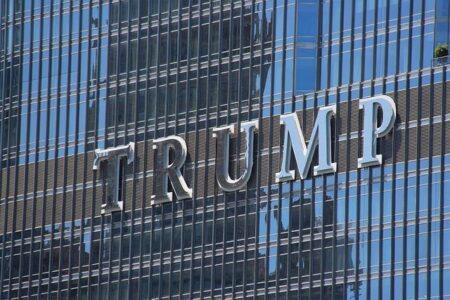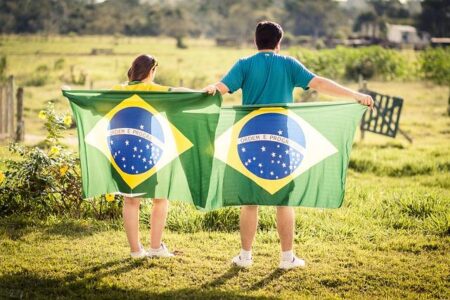Fact-checkers from Brazil, Indonesia, and the United States have been honored with the prestigious 2025 Global Fact-Checking Awards, announced by Poynter. These recognitions highlight the critical role that fact-checking organizations play worldwide in combating misinformation and promoting accuracy in the media. The awarded teams’ work underscores the growing global commitment to transparency and truth in journalism in an era marked by rapid information dissemination and widespread disinformation.
Global Fact-Checking Awards Spotlight Diverse Approaches to Combat Misinformation
This year’s Global Fact-Checking Awards highlighted the innovative strategies employed by fact-checkers across continents, demonstrating a global commitment to battling misinformation. The winners from Brazil, Indonesia, and the United States showcased how cultural context and technological adaptation play pivotal roles in enhancing fact-checking efficacy. For instance, the Brazilian team leveraged social media analytics to track viral falsehoods rapidly, while the Indonesian group focused on community engagement to debunk health-related myths circulating in rural areas. Meanwhile, the US contingent utilized AI-driven tools combined with traditional journalism to pinpoint and dismantle politically charged fake news.
Key approaches featured among the winners include:
- Combining local language expertise with digital verification technologies
- Training grassroots volunteers to expand fact-checking reach
- Partnering with social media platforms to improve flagging systems
- Utilizing data visualization for clearer presentation of verified information
| Country | Focus Area | Innovative Method |
|---|---|---|
| Brazil | Political Misinformation | Real-time social media tracking |
| Indonesia | Health Myths | Community volunteer training |
| United States | Election News | AI-assisted verification |
Innovative Techniques and Impact of Winning Fact-Checkers from Brazil Indonesia and the US
Fact-checkers from Brazil, Indonesia, and the United States have set new standards by leveraging cutting-edge methodologies that combine technology with grassroots reporting. Their innovative approaches include the integration of artificial intelligence tools to analyze social media trends, deploying localized verification networks to enhance data accuracy, and engaging communities through interactive digital platforms. These techniques have not only expedited the verification process but have also empowered citizens, enabling them to discern misinformation and participate actively in the promotion of truth.
Key innovations highlighted by the winners include:
- Collaborative cross-border fact-checking collaborations that transcend language barriers
- Use of mobile-based verification apps tailored for remote and marginalized areas
- Real-time data visualization dashboards that map misinformation spread
- Educational initiatives focusing on media literacy integrated into local schools
| Country | Innovative Technique | Impact |
|---|---|---|
| Brazil | Community-driven WhatsApp verification groups | Increased engagement in remote areas by 40% |
| Indonesia | AI-based misinformation trend analysis | Detected false narratives within hours |
| United States | Interactive educational web series | Reached over 1 million students nationwide |
Recommendations for Strengthening Fact-Checking Efforts Worldwide Based on Award Winners’ Practices
Collaboration emerged as a cornerstone in the most effective fact-checking initiatives. Winners from Brazil, Indonesia, and the US demonstrated that cross-border partnerships and knowledge exchange significantly enhance the accuracy and reach of fact-checking efforts. By leveraging multilingual teams and local expertise, these organizations were able to debunk misinformation in diverse cultural contexts swiftly. Investing in training programs that foster investigative skills, ethical reporting, and digital literacy equips fact-checkers to maintain credibility and resilience against evolving disinformation tactics.
Another key practice involves the strategic use of technology and audience engagement. Award-winning teams integrated AI-driven verification tools with human oversight, accelerating the process without compromising quality. Additionally, transparent communication and interactive platforms helped build public trust, making fact-checking a participatory endeavor rather than a one-way broadcast. Media organizations are encouraged to adopt adaptable workflows and embrace community feedback loops to keep pace with the dynamic landscape of misinformation.
| Best Practice | Example from Award Winners |
|---|---|
| Cross-border Collaboration | Brazil-Indonesian team joint investigations |
| Multilingual Fact-Checking | US team’s Spanish and English verification |
| AI-Enhanced Verification | Automated image and data analysis tools |
| Audience Engagement | Interactive social media Q&A sessions |
Wrapping Up
As the 2025 Global Fact-Checking Awards highlight the vital role of fact-checkers worldwide, the recognition of teams from Brazil, Indonesia, and the United States underscores the global commitment to combating misinformation. Their pioneering work not only strengthens public trust in media but also sets a benchmark for journalistic integrity in an era increasingly challenged by falsehoods. These awards serve as a reminder of the ongoing need for vigilance, accuracy, and transparency in reporting to uphold the foundations of informed societies everywhere.



